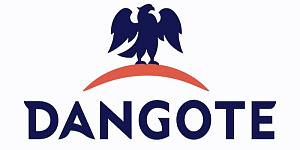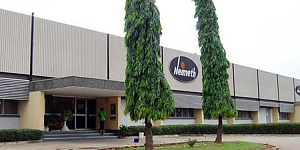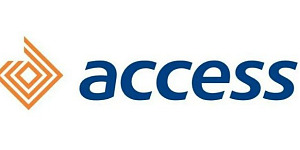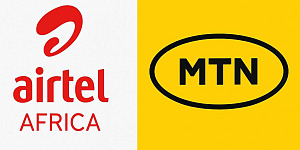Fitch Ratings has downgraded Diamond Bank Plc's (NGSE:DIAMONDBNK) Long-Term Issuer Default Rating (IDR) to 'CCC' from 'B-' and Short-Term IDR to 'C' from 'B'. Diamond's National Long-Term Rating has been downgraded to 'B(nga)' from 'BB+(nga)'. A full list of rating actions is at the end of this rating action commentary.
The two-notch downgrade of Diamond's Long-Term IDR reflects uncertainty over its solvency and liquidity in view of very weak asset quality, highly vulnerable capital position as well as tight foreign currency (FC) liquidity ahead of an upcoming maturing USD200 million Eurobond in May 2019. The bank has some contingency plans, such as the sale of its UK subsidiary, but execution may be challenging, especially considering the recent resignation of four board members.
KEY RATING DRIVERS
IDRS, VR, SENIOR DEBT, NATIONAL RATINGS
Diamond's IDRs are driven by its standalone credit profile, as defined by its Viability Rating (VR). Diamond's VR is highly influenced by very weak asset quality, which renders its capital position highly vulnerable to any further deterioration. The VR also reflects limited FC liquidity.
Stage 3 loans under IFRS 9, including past due not impaired, which better captures asset quality in our view, accounted for a very large of 37% of gross loans at end-1H18, compared with a reported impaired loans ratio (under IAS39) of 13% for the same period. Diamond's stage 2 loans were a further 23% of gross loans, mostly comprising restructured loans. Diamond has the highest share of problem loans (total stage 2 and stage 3 loans as a proportion of gross loans) among Nigerian rated banks. Loan loss allowance cover is very low at 19% of stage 3 loans.
We view Diamond's capital buffers as limited, given very weak asset quality, despite a relatively high Fitch Core Capital (FCC) ratio of 17.5% at end-1H18. In our view capital remains highly vulnerable given the bank's low loan loss allowances. Higher reserve coverage would erode considerably the bank's capital base. Unreserved stage 3 loans were 110% of FCC at end-1H18.
Diamond has a small buffer over its 15% regulatory total capital adequacy ratio requirement (Total CAR at 16.3% at end-9M18). Fitch understands that Diamond has received the approval from the Central Bank of Nigeria (CBN) to obtain a national banking licence, and therefore lower its minimum total capital requirements to 10%. However, this is subject to the completion of the sale of the UK subsidiary.
Diamond's FC liquidity improved in 2017, in line with easing FC liquidity conditions in Nigeria. However, FC liquidity remains tight, as Diamond's FC loans/customer deposits ratio reached 180% at end-1H18. The bank has a number of large bullet repayments due in the short term, including its USD200 million Eurobond maturing in May 2019, USD100 million from Afrexim due in March 2019, and USD70 million from the International Finance Corporation due in July 2019. The bank had about USD300 million of liquid assets held as unrestricted cash and cash equivalents and loans to foreign banks at end-1H18.
We understand that the bank aims to negotiate the refinancing of international financial institution funding, while the improved cash flows from the oil loan book and the disposal of its subsidiary in the UK will be the main contributors to redeeming the Eurobond. However, the refinancing has not yet been agreed, while subsidiary disposal has yet to be approved by the Prudential Regulation Authority in the UK and cash flows from the troubled oil sector are uncertain. Therefore we see significant execution risk with this plan. Although FC supply has improved, we do not expect Diamond to be able to swap significant volumes of local currency to repay foreign currency obligations.
Diamond's Long-Term IDR also considers governance shortfalls following the resignation of four members of the board in October 2018, including the chairman (only appointed in 2018) and three non-executive directors, raising questions around effective oversight and ongoing operational capability of the bank. It may also create difficulties in refinancing its obligations with existing lenders.
Diamond's National Ratings reflect its creditworthiness relative to the country's best credit and relative to peers operating in Nigeria. The Long-term National Rating has been downgraded by several notches due to its weaker credit profile.
Diamond's senior unsecured debt has been downgraded to 'CCC'/'RR4', reflecting our assessment that average recoveries are a plausible outcome for senior bondholders in the event of a default, albeit this is sensitive to changes in assumptions.
SUPPORT RATING AND SUPPORT RATING FLOOR
Diamond's Support Rating (SR) and Support Rating Floor (SRF) reflect uncertainty over the ability of the authorities to support banks, particularly in FC. In addition, there are no clear messages from the authorities regarding their willingness to support the banking system. Our view is that senior creditors cannot rely on receiving full and timely extraordinary support from the authorities should a bank become non-viable. Therefore, the SRF of all Nigerian banks is 'No Floor' and all Support Ratings are '5'.
RATING SENSITIVITIES
IDRS, NATIONAL RATINGS AND SENIOR DEBT
Diamond's IDRs are sensitive to any change in its VR. The VR is sensitive to further weakening of precarious asset quality, including a migration of Stage 2 loans to Stage 3 and from further reserving shortfalls of Stage 3 loans, eroding capital. The VR is also sensitive to any increase in the probability for being able to meet FC obligations. The VR is also sensitive to continuing governance weaknesses stemming from the resignation of four directors.
Rating upside is unlikely in the short term given the bank's very fragile financial position. An upgrade of the bank's VR may result from reduced execution risk in meeting FC obligations or a structural shift in capitalisation, increasing Diamond's ability to build loan loss allowances.
Diamond's National Ratings are sensitive to a change in its creditworthiness relative to other Nigerian issuers.
The rating actions are as follows:
Long-Term IDR downgraded to 'CCC' from 'B-'
Short-Term IDR downgraded to 'C' from 'B'
Viability Rating downgraded to 'ccc' from 'b-'
Support Rating affirmed at '5'
Support Rating Floor affirmed at 'No Floor'
National Long-Term Rating downgraded to 'B(nga)' from 'BB+(nga)'
National Short-Term Rating affirmed at 'B(nga)'
Senior unsecured long-term Rating downgraded to 'CCC'/'RR4' from 'B-'/'RR4'



























































